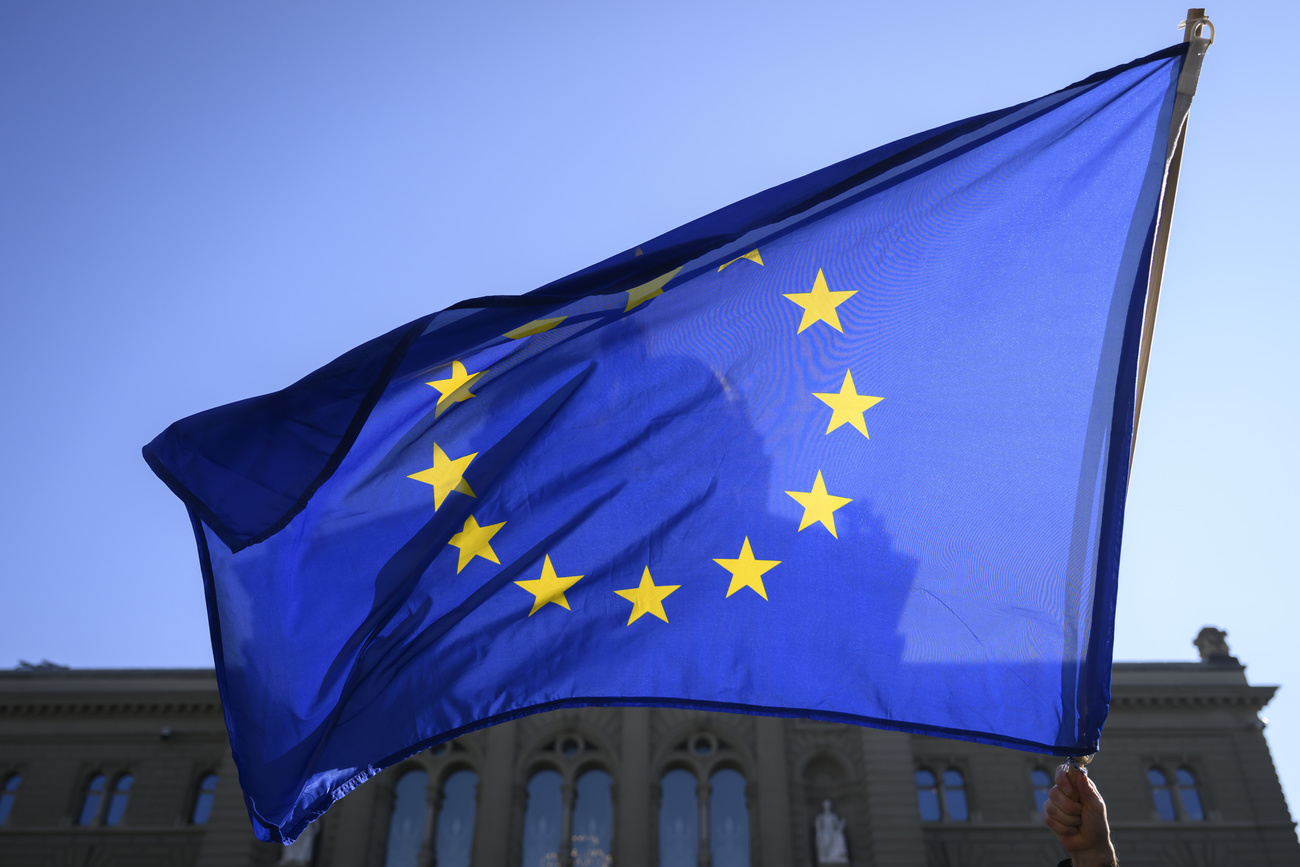

Switzerland Today
Greetings from Bern!
“I’m not an expert but this is how I see it.” That was said by one of the speakers, chosen by lot, at a citizens’ assembly we recently attended. What role can such gatherings play in strengthening Swiss democracy? Find out more below, as well as other news and stories from Switzerland on Friday.

In the news: In a 13-point joint declaration, representatives from Switzerland and the European Union have stressed the importance of maintaining good and stable relations, for the time being on a bilateral basis.
- There are “no insurmountable political differences” between Switzerland and the EU, they said at the Swiss-EU interparliamentary meeting today. Last year Switzerland unilaterally walked away from negotiations on a framework deal to replace the more than 120 bilateral accords which have regulated relations for the past decades. That led to a souring of relations between Bern and Brussels; subsequent efforts to break the diplomatic deadlock have not succeeded.
- Switzerland should aim to be climate neutral by 2035 instead of 2050 to limit global warming to 1.5°C, say the authors of a study. They claim that anything less than achieving net zero by 2035 would be unfair to those countries that have emitted little CO2 so far.
- Canton Bern wants to save energy by lowering room temperatures and dispensing with unnecessary lighting in schools. The temperature in classrooms, lecture rooms, study rooms, libraries, cloakrooms and showers is to be limited to 20°C. Multi-purpose halls, sports halls and gymnasiums should be heated to a maximum of 17°C. Private heaters are banned.

Can citizens’ assemblies strengthen Swiss democracy? Several Swiss municipalities are trying out a system of selecting citizens by lot to debate important issues like climate change. Everyone has a say, regardless of their age or the colour of their passport.
SWI swissinfo.ch listened in on one such citizens’ assembly in a village in canton Zurich. The debate on climate change is taking place inside the auditorium of an old people’s home. An elderly speaker takes the floor. “I don’t know,” he says. “I’m not an expert but this is how I see it.”
His audience is more diverse than any parliament in Switzerland. In all, 22 participants chosen by lottery based on their age, gender, education and political leanings are gathered in the auditorium. Seven don’t have Swiss citizenship, and one is a minor. What they have in common is their place of residence: the village of Thalwil in canton Zurich.
Around 18,000 people live in this community on the shores of Lake Zurich. There’s no local parliament, which means the fate of the community is decided by a municipal government comprising eight men and one woman. Recently, the municipality introduced a citizens’ assembly to discuss climate change at the local level. The way the people of the village exchange their views on these types of issues is very different from the way politicians go about it. There are no campaigns, no slick-talking politicians, and no pretenders – just real people having honest conversations.
Thalwil is the third and final municipality in canton Zurich to participate in the pilot project for citizens’ assemblies that are currently making waves in Switzerland. They aim to strengthen democracy and the way the country is handling the climate crisis. Extinction Rebellion, a radical climate protection group, has repeatedly called for such citizens’ assemblies. The real impact of these forums remains unclear, however. Much of it depends on how they are implemented.

A circular economy means moving away from using precious raw materials and producing goods that end up in the landfill. Products are repaired, reused and recycled instead.
This video shows how the process works in Switzerland, a country with few raw materials which is good at recycling but which also generates among the most waste in Europe.
Various hurdles stand in the way of developing a circular economy and prevent the efficient use of resources. The potential for improvement is particularly high in the areas of construction and housing, agriculture and food, transport, mechanical engineering and the chemical industry.
More

In compliance with the JTI standards
More: SWI swissinfo.ch certified by the Journalism Trust Initiative

















![The four-metre-long painting "Sonntag der Bergbauern" [Sunday of the Mountain Farmers, 1923-24/26] had to be removed by a crane from the German Chancellery in Berlin for the exhibition in Bern.](https://www.swissinfo.ch/content/wp-content/uploads/sites/13/2025/12/01_Pressebild_KirchnerxKirchner.jpg?ver=a45b19f3)











